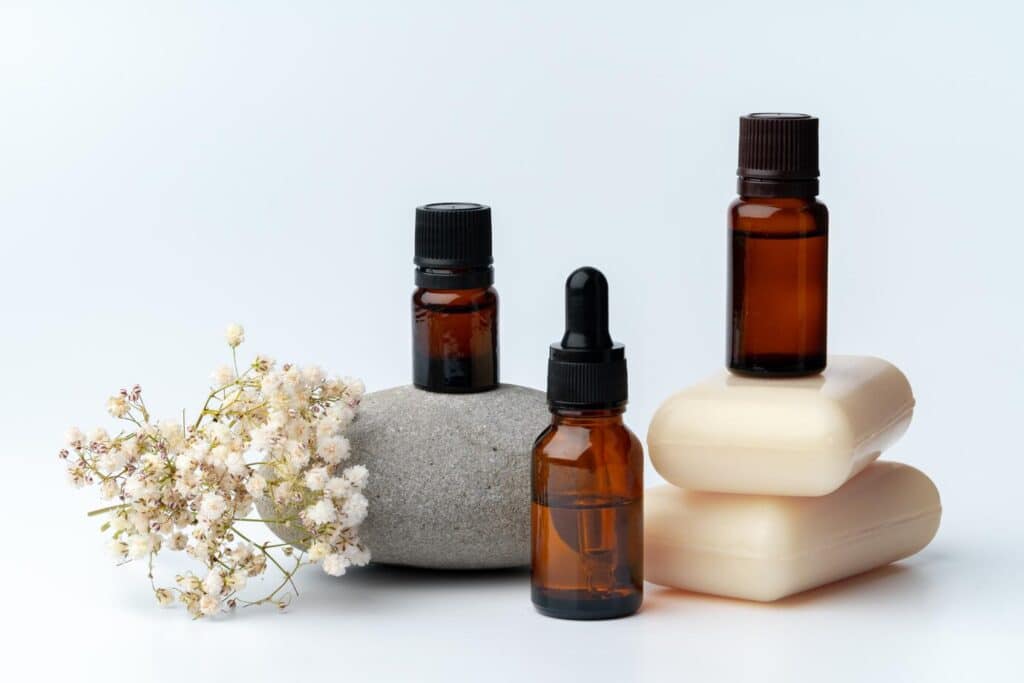Aromatherapy in Memory Care: Healing Through Scent
Aromatherapy in Memory Care is not just a wellness trend – it’s a transformative tool that nurtures emotional well-being and supports cognitive function in seniors with memory-related conditions. At Westmont of Riverside, this practice blends science and compassion, creating calming, scent-infused spaces designed to comfort and stimulate residents.
Seniors facing memory challenges often experience anxiety, agitation, or confusion. Aromatherapy in memory care introduces a gentle yet powerful approach to help mitigate these symptoms. Through the intentional use of essential oils, particularly those known to aid memory and concentration, caregivers can provide sensory stimulation that soothes the mind and sparks familiar memories.
The Historical Roots of Aromatherapy in Memory Care
Aromatherapy has existed for centuries, with its roots in ancient healing practices across Egyptian, Greek, and Chinese cultures. Oils from aromatic plants were once used in spiritual rituals, medicine, and daily hygiene. Fast-forward to today, and these same botanicals have found a home in memory care programs where traditions of healing meet modern science.
These therapeutic practices, like those discussed in this health-monitoring technology article, now work in synergy with innovations in elder care. Integrating essential oils for sundowning syndrome and other dementia-related symptoms into daily routines reflects how age-old traditions can be repurposed to meet modern memory care challenges.
How Scents Activate the Brain
Scent is directly tied to the limbic system, the part of the brain responsible for emotion and memory. When someone with memory loss encounters a familiar aroma, it can ignite mental clarity or bring comfort.
Here are three ways scent influences memory care:
- Limbic Activation: Smells like rosemary stimulate brain areas responsible for cognition and emotional balance.
- Memory Triggers: The right aroma can retrieve long-lost memories, providing emotional relief or joy.
- Mood Stabilization: Scents like lavender help lower agitation levels, a common issue in dementia care.
This is why Westmont incorporates sensory therapies into memory care – it helps build stronger connections between mind and environment.
Powerful Oils in Memory Support
Among the hundreds of essential oils, a select few have demonstrated particular effectiveness in aiding memory, reducing anxiety, and promoting cognitive clarity. Let’s explore some standouts.
Lavender: The Comforting Calm
Lavender is a staple in aromatherapy in memory care due to its calming effects. It reduces stress, enhances sleep, and supports emotional balance. Its gentle scent can immediately shift a resident’s mood from agitation to peace.
Benefits of lavender in memory care:
- Reduces anxiety and restlessness.
- Improves the quality of sleep.
- Soothes irritability and promotes calm interactions.
Lavender is also ideal for hand massage for dementia patients, as the gentle physical contact paired with scent offers dual sensory engagement. Consider pairing it with mindfulness practices for deeper relaxation.
Rosemary: Boosting Mental Clarity
Rosemary is widely recognized as the best essential oil for memory and concentration. Its invigorating scent supports attention span, clarity, and recall.
When incorporated during therapy or reading sessions, rosemary helps residents stay focused and present. Studies show that rosemary inhalation may improve memory task performance and decrease mental fatigue.
Use this oil in diffuser recipes for essential oils for dementia to gently awaken cognitive function during morning routines.

Practical Uses of Aromatherapy in Memory Care Settings
Aromatherapy is most effective when applied consistently and thoughtfully. Here are three key methods used in care settings:
- Diffusers: Disperse calming oils into shared spaces to set a relaxing tone.
- Personal Scent Pouches or Inhalers: Customized with each resident’s preferred scent to carry throughout the day.
- Massage Therapy: Use essential oils during hand massage for dementia patients to provide calming physical and emotional support.
These applications are easily personalized and scalable across care communities, bringing serenity and stimulation directly to residents’ daily lives.
Safety Measures and Quality Assurance in Aromatherapy
Quality matters. Using pure essential oils without additives is critical in medical-grade aromatherapy, especially in vulnerable populations.
Sourcing Quality Oils
Ensure your oils come from trusted suppliers. Brands like Young Living essential oils for memory and concentration are known for their transparency and high purity standards. While multiple options exist, oils must be:
- Third-party tested for purity.
- Labeled clearly with full ingredient disclosures.
- Free from synthetic fillers that can irritate or harm.
Monitoring Reactions and Adjustments
Not every scent works for every person. That’s why Westmont caregivers pay close attention to how residents react, both verbally and physically.
Look for signs such as:
- Calmness or agitation.
- Increased engagement or withdrawal.
- Verbal feedback about preferences.
Adjusting based on this feedback ensures aromatherapy in memory care is both safe and personalized.

Advanced Blending: Diffuser Recipes for Essential Oils for Dementia
Creating custom blends for memory care can amplify aromatherapy’s benefits. Here are two simple diffuser recipes for essential oils for dementia support:
Recipe 1 – Evening Calm for Sundowning:
- 3 drops of Lavender
- 2 drops Frankincense
- 2 drops Cedarwood
Recipe 2 – Morning Mental Boost:
- 3 drops Rosemary
- 2 drops of Peppermint
- 2 drops of Lemon
Both blends can ease symptoms of essential oils for sundowning syndrome or prepare residents for therapy or social activities.
For more ideas, explore this essential oil blend guide from the National Institutes of Health (NIH), which breaks down evidence-based uses of aromatherapy in dementia care.
Building Community Around Aromatherapy
Aromatherapy in memory care is more than an individual experience – it helps build stronger community connections. Here’s how:
- Group scent activities like potpourri-making or massage workshops build friendships.
- Family engagement increases when relatives learn about the oils and even participate.
- Staff morale improves when soothing scents reduce environmental stress.
It turns caregiving from routine into ritual, and routine spaces into sanctuaries.

Scents That Heal: A Fragrant Path to Better Memory Care
Incorporating aromatherapy in memory care is more than just adding scent to a space – it’s a research-backed, compassionate intervention that touches each resident’s emotional and mental layers. By understanding the uses of hand massage for dementia patients, crafting safe diffuser recipes for essential oils for dementia, and utilizing trusted products like Young Living essential oils for memory and concentration, caregivers can profoundly enhance daily life.
From battling sundowning with essential oils for sundowners syndrome to stimulating focus with the best essential oil for memory and concentration, this approach invites dignity, joy, and presence into the lives of those in memory care.
To learn more about how Westmont of Riverside uses these techniques, call us at 951-697-2100 or schedule a tour and experience a space designed for comfort, clarity, and care.
Frequently Asked Questions
How does aromatherapy help dementia patients?
Aromatherapy can help dementia patients by reducing agitation, anxiety, and restlessness through calming scents like lavender and lemon balm. These essential oils can promote a sense of peace and improve overall mood. Studies suggest aromatherapy may also improve sleep and reduce behavioral issues in patients with Alzheimer’s and other forms of dementia. It’s a non-invasive, natural way to enhance quality of life.
How does aromatherapy improve memory?
Aromatherapy may stimulate parts of the brain linked to memory and emotion, particularly the limbic system. Scents like rosemary and peppermint are believed to enhance alertness and cognitive function. In some studies, participants exposed to certain essential oils performed better on memory-related tasks. While not a cure, aromatherapy can be a supportive tool for boosting short-term memory and concentration.
What calms dementia patients?
To calm dementia patients, creating a peaceful and familiar environment is key. Techniques include soft music, gentle conversation, touch therapy, and aromatherapy with calming oils like lavender. Routine and reassurance also help reduce confusion and fear. Engaging patients with sensory activities and avoiding overstimulation can further support emotional stability.
What aromatherapy is good for memory?
Essential oils such as rosemary, peppermint, and sage are commonly used to support memory and cognitive clarity. Rosemary, in particular, is often linked to improved recall and alertness. These oils can be diffused, applied topically with a carrier oil, or inhaled directly under professional guidance. Consistent use as part of a wellness routine may help promote sharper mental function.








